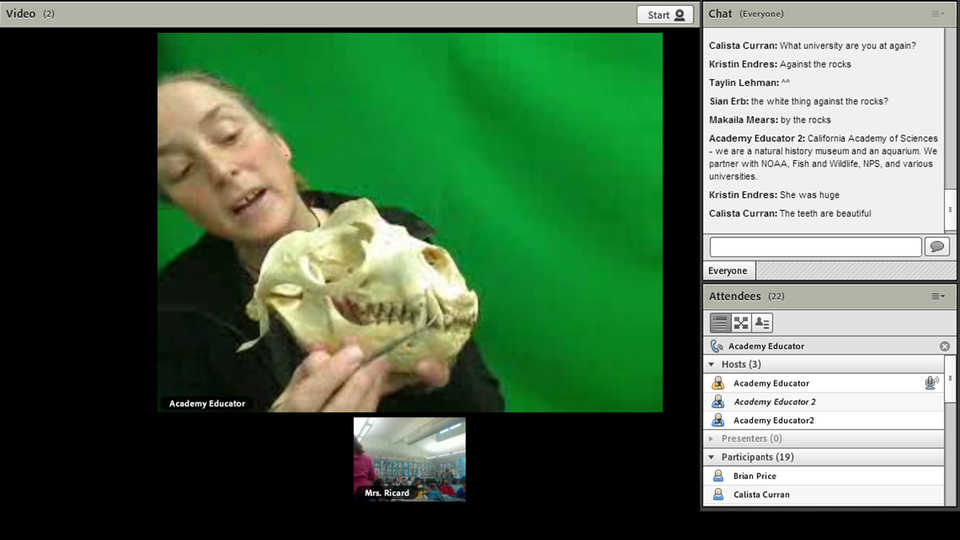What do you have to do to get a good job at the Academy?
- Be good at what you do. Be in the right place at the right time. Study hard.
What do scientists learn about a species, in general, by examining all those many individual skulls?
- If we look at only one or two skulls we do not see the whole population and we would make bad generalizations. It is like if we look at only two students in the classroom that were about the same height and we said every student in the classroom is the same height. We would not see from just those two students that there are tall students and there are short students in the same population. We would make bad assumptions about the height of the students in the classroom. But if we look at more students we may be able to notice there are students of different heights. We do the same with our skulls. The more skulls of the same species we look at the better we understand the population.
How do you deal with seeing the dead animals? Do you ever get sad or feel full of grief when an animal dies? Do you ever feel bad when you cut open the whales?
- It is sad to see the marine mammals wash on shore, but it is helpful to remember the more we learn from these animals the more we can help them. We can gather evidence to make changes such as those changes that were made with our shipping lanes. This will help the animals in the future.
What is the point of studying dead animals? Do you learn from it and try to prevent it from happening to living ones?
- Dead animals can teach us about the species biology, distribution, anatomy, and life history. We use that information to aid in working to prevent additional deaths.
What should someone do if they see an animal (dead or alive) on a beach?
- In the San Francisco Bay Area
- Live – Call the Marine Mammal Center 415-289-7325
- Dead – Call the California Academy of Sciences 415-379-5381
- Outside of the San Francisco Bay area:
- Call the Marine Mammal Stranding Network 1-866-767-6114
